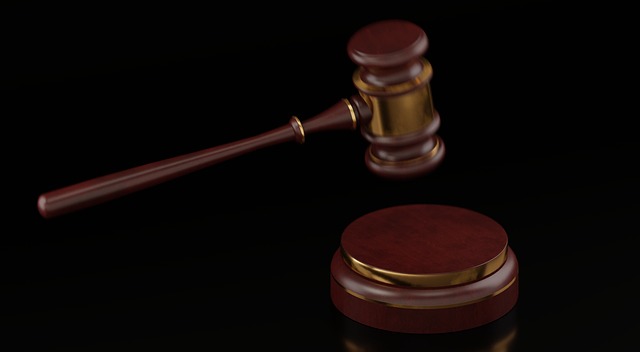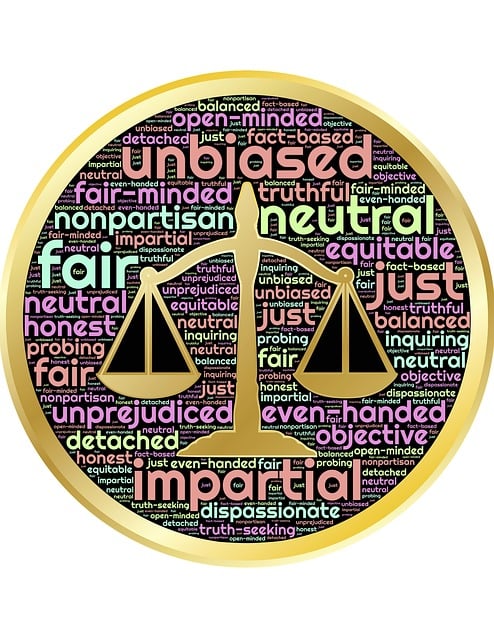Navigating Administrative Law: Steps to Success with Litigation Support

The Steps in Administrative Law Proceedings are crucial for managing complex legal cases, ensuring f…….
Administrative law, a cornerstone of modern governance, governs the operations and decision-making processes of government agencies and public bodies. At the heart of this legal domain lies a structured framework known as “Steps in Administrative Law Proceedings.” This intricate process ensures fairness, transparency, and accountability in various administrative actions, from licensing and permitting to regulatory compliance and dispute resolution.
This article aims to dissect and explore the multifaceted world of administrative law proceedings, offering readers a comprehensive understanding of its components, mechanisms, and global impact. By delving into each step, we will uncover the significance of this legal framework in shaping effective governance, fostering economic growth, and protecting individual rights.
“Steps in Administrative Law Proceedings” refers to a series of procedural stages that guide the process of administrative decision-making. It is a structured approach designed to ensure fairness, due process, and consistency in the actions of government agencies. These proceedings are essential for several reasons:
The core components of this process typically include:
The influence of “Steps in Administrative Law Proceedings” extends far beyond national borders, shaping global governance and public policy. Here’s an overview of its international impact and emerging trends:
| Region | Key Influences | Notable Trends |
|---|---|---|
| North America | The United States, with its robust administrative law framework, has influenced legal practices worldwide. | Emphasis on due process and judicial review, particularly in the context of environmental regulations. |
| Europe | European Union (EU) laws have set standards for administrative proceedings across member states, promoting consistency and fairness. | Increased digital transformation, with online platforms facilitating case management and public access to information. |
| Asia | Countries like Japan and South Korea have adopted Western models, adapting them to their cultural and legal contexts. | Rapid urbanization drives the need for efficient urban planning and administrative processes, impacting land use and development. |
| Middle East | The region’s legal systems, influenced by common law and civil law traditions, are integrating modern administrative practices. | Growing emphasis on transparency and anti-corruption measures in public sector decision-making. |
| Africa | With varying legal systems, African nations are adopting best practices from around the world to enhance their administrative frameworks. | The rise of administrative tribunals and specialized courts for efficient dispute resolution. |
The economic landscape plays a significant role in shaping “Steps in Administrative Law Proceedings” and vice versa. Here’s how these elements interact:
Technology has revolutionized administrative law proceedings, enhancing efficiency, accessibility, and transparency. Key advancements include:
Comprehensive policies and regulations are vital for defining and governing “Steps in Administrative Law Proceedings.” Key frameworks include:
Despite its advantages, “Steps in Administrative Law Proceedings” faces several challenges and criticisms that demand attention:
Solutions and Strategies:
Let’s explore a few case studies to gain insights into successful implementations and challenges overcome through effective “Steps in Administrative Law Proceedings”:
Looking ahead, “Steps in Administrative Law Proceedings” is poised for further evolution, driven by emerging trends and technological advancements:
In conclusion, “Steps in Administrative Law Proceedings” is an indispensable component of modern governance, shaping the way governments interact with citizens and businesses. Its importance lies in ensuring fairness, transparency, and accountability in administrative actions, thereby fostering a stable and predictable business environment.
By understanding its core components, global impact, economic considerations, technological advancements, and the challenges it faces, we can appreciate the complexities and opportunities within this field. As we move forward, continuous adaptation to emerging trends will be crucial to meet the evolving needs of society and maintain the integrity of administrative law proceedings.
Q: What is the primary purpose of Administrative Law Proceedings?
A: The primary purpose is to ensure fairness, transparency, and consistency in government decision-making, protecting individual rights and promoting good governance.
Q: How do technological advancements impact these proceedings?
A: Technology streamlines processes, enhances accessibility, improves data management, and enables efficient dispute resolution, overall improving the administrative landscape.
Q: Can you explain the role of due process in Administrative Law Proceedings?
A: Due process guarantees fair procedures, ensuring that individuals are informed, have the right to be heard, and can challenge decisions, thus maintaining the integrity of the process.
Q: What are some common challenges faced by administrative bodies in implementing these proceedings?
A: Common challenges include resource constraints, complex regulations, public skepticism about fairness, and the need for continuous adaptation to technological changes.
Q: How do global trends influence the development of Administrative Law Proceedings?
A: Global trends, such as digitalization, environmental sustainability, and growing demands for transparency, shape the direction of administrative law, driving innovation and standardization.

The Steps in Administrative Law Proceedings are crucial for managing complex legal cases, ensuring f…….

Healthcare law firms act as guides in navigating medical regulations, ensuring compliance and protec…….

Healthcare law firms specialize in navigating complex administrative lawsuits, employing expert know…….

Public corruption cases follow specific legal procedures, beginning with a complaint and investigati…….

Criminal law cases follow specialized procedures, starting with an investigation and charges filed b…….

Consumer protection laws navigate Steps in Administrative Law Proceedings to safeguard consumers fro…….

Facing criminal charges? Understanding the process is key, mirroring administrative law steps for fa…….

Understanding legal frameworks and jurisdictions is crucial for C-Level investigations. The Steps in…….

Financial crime probes follow structured Steps in Administrative Law Proceedings to uncover illegal…….

Mail wire fraud, a sophisticated digital crime involving deceptive methods like phishing and investm…….